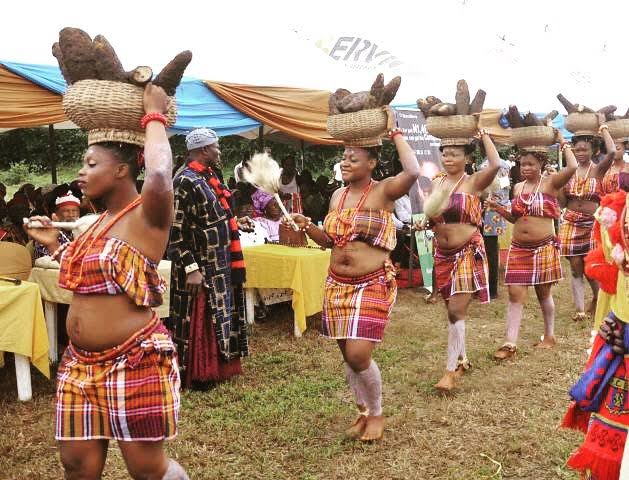The Iri Ji Ohuu, or New Yam Festival, is one of the most significant cultural celebrations among the Igbo people of Nigeria.
The festival is, however, known by several names including Iri ji, Onwa Asaa, Iwa Ji or Orurueshi, among others, in various communities across Igbo land.
This festive occasion marks the end of the harvest season and the beginning of new yam consumption.
It also marks the abundance and good fortune, celebrating the earth’s generosity and honoring their deities, especially the earth goddess, who is believed to protect the crops.
Celebrated annually, typically in August, the festival is a time of thanksgiving, reflection, and vibrant community celebrations.
Customs and Rituals
The festivities begin with the preparation of yams, which are harvested and presented with reverence. Traditionally, the first yam of the harvest is dedicated to the ancestors and the gods through elaborate rituals.
Families gather to prepare sumptuous meals featuring yams, alongside local dishes, often showcasing the culinary diversity of the Igbo culture.
During the festival, the traditional leader or village chief performs rituals to honor the ancestors, asking for blessings and prosperity for the new season.
Music and dance play a pivotal role, with vibrant performances often involving traditional songs and drums. The masquerades add a unique flair, symbolizing the spirits of the ancestors watching over the festivities.
Community Celebration
Iri Ji Ohuu serves as a unifying event for families and communities. People don their colorful traditional attire, embodying the spirit of joy and celebration. Friends and family members come together to feast, share stories, and participate in various games and activities. The festival is an opportunity for social bonding, deepening familial ties and strengthening community relationships.

